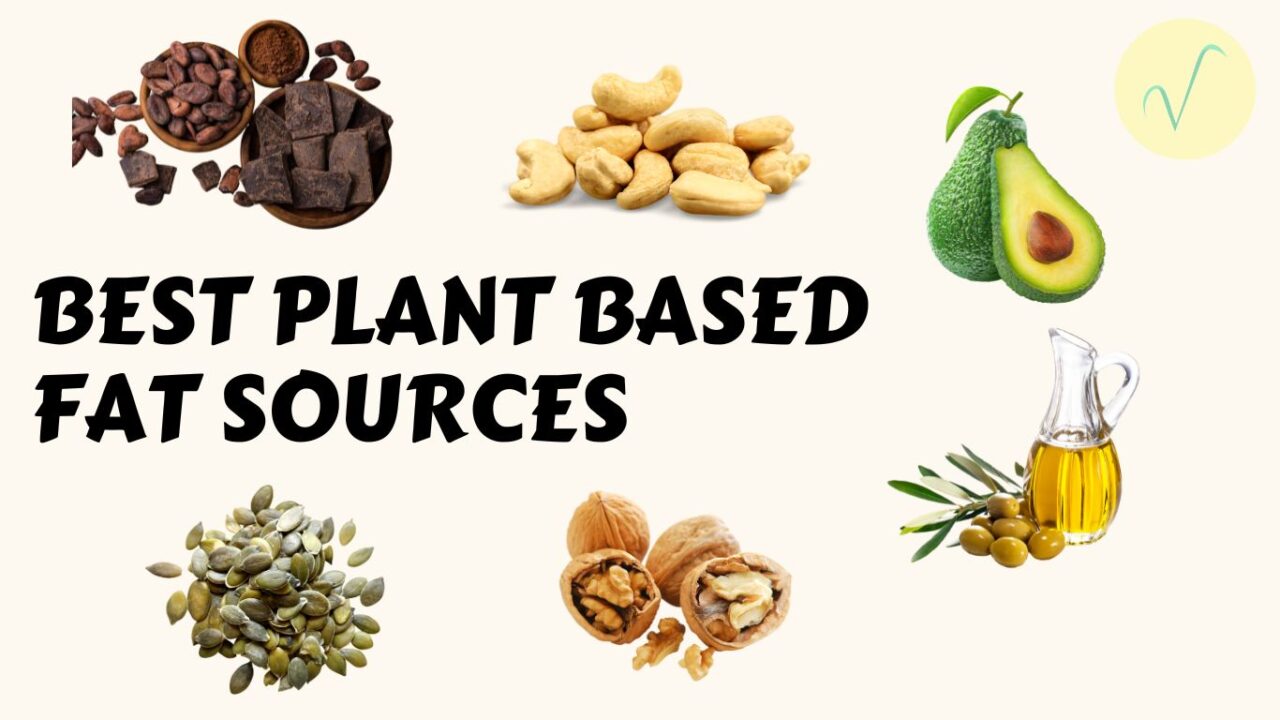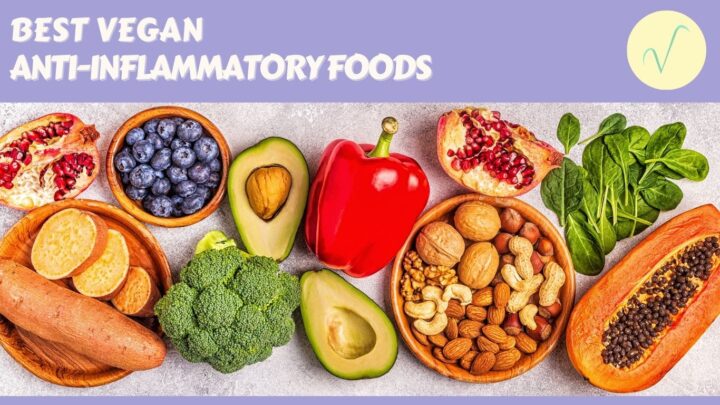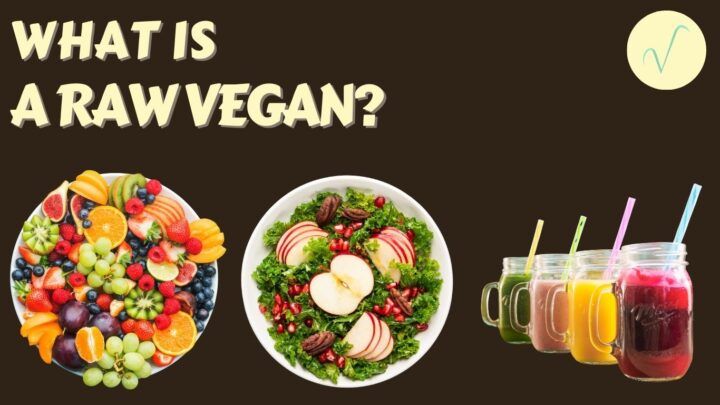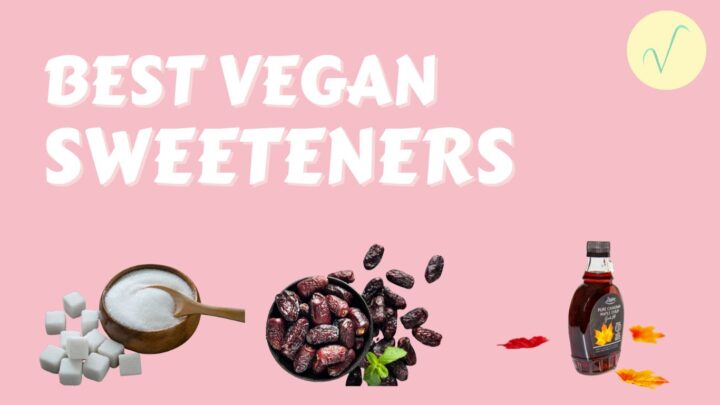A well-planned vegan diet can provide you with the adequate amount of calories, protein and overall nutrients for a healthy lifestyle. Vegan sources of fat aren’t just processed chips and snacks – This post is about the healthy, plant-based souces of fat for vegans.
When planning for a vegan diet and hitting all your macros, you want to ensure you’re also getting your healthy fats. Like any diet, balance can be in reference to an array of things.
Vegan diets in general are much lower in fat from the void of animal products such as meat and dairy. It is important the modern vegan is well educated on how much fat they should be consuming daily; Here are some staple, good sources of fat for vegans.
Our list of plant-based high fat foods
For those looking to bulk up, for general information, or for future reference, we’ve gathered the best vegan sources of fat for your shopping lists.
These range from general vegan fat sources to those containing omegas and such.
Avocado
The humble avocado has always been an interesting food, pairs well with salads or makes a great base to a homemade pesto or guacamole.
Merely half an avocado, roughly 100 grams, provides 15g of your daily fat. A great vegan fat sources, as well as being a complete vegan protein-rich food.

Walnuts
One of my favourite shelled nuts, the walnut is a great vegan source of fat, providing 18g in merely an ounce of walnuts. A source of both omega 3 & 6 fatty acids, walnuts are a great versatile nut that can even be strained into cheese!
Great on its own, infused in a walnut cake or crushed and sprinkled on salads, get your daily dose.

Chia seeds
The chia seed is a superfood that has been around since the Aztec times, yet people are only now starting to truly notice its health benefits.
Being both tasty, the texture behind chia pudding as well as a complete plant protein; Chia seeds are also a great plant-based source of fat, being rich in ALA Omega-3 fatty acids. 1 ounce provides 9g of your daily dosage of fat.

Peanut or almond butter
A common vegan snack among many, whether you like it to bulk up your smoothies, plain with bread or to go with some jam in a toast – Nut butters are a great way to incorporate more nuts in your daily diet, and with that more fat.
1 tbsp of peanut butter and almond butter provides 16g and 9g of fat, respectively.

Olives and olive oil
Another fatty fruit (well, technically) for the list, my personal favourite addition to a salad, being the olive oil. Olives are great too as a snack or a topping to salads, chopped onto a pizza or baked in bread.
1 tbsp of olive oil provides you with 14g of fat; whereas if you were to eat 8 olives, you’d likely consume around 9g of fat from its whole food form.

Hemp seeds
These little seeds are becoming more and more popular in recent times, packing a nutritional punch, being rich in zinc and iron, a complete vegan source of protein, and tasty!
These are also a great source of omega-3 fatty acids, providing 14g of fat in a tablespoon of hemp seeds, try some on top of your salad today!

Sunflower seeds
These little seeds are very overlooked for nutrition in general, being a great plant based source of magnesium, protein as well as being tasty.
Perfect on salads, oats, on its own or in homemade trail mix, sunflower seeds provide you with 4g of fat per tbsp.

Pumpkin seeds
Another source of vegan protein for the list, another complete vegan protein with all the essential amino acids. I personally have these with a handful of dried mulberries or cranberries in a homemade trail mix.
Just 1 tbsp of pumpkin seeds provides you with 5g of healthy fats, as well as being one of the best sources of plant-based omega-3 fatty acids.

Sesame seeds and tahini
Sesame seeds are great in Asian cuisine as well as middle eastern foods and are more versatile than you may think.
A great way to incorporate sesame seeds into your diet can be from our homemade falafels, or making some homemade hummus and veggies, incorporating that into your daily diet.
1 tbsp of sesame seeds provides 4.5g of fat, 1 tbsp on tahini (the sauce used for falafel) can provide 8g of fat per serving.

How much fat should you consume per day?
Depending on how active you are, you should be aiming to consume between 40-80g of fat per day.
This of course also depends on other lifestyle factors, age, gender, sedentary level, etc, and saturated fat intake is much lower, at around 22g max per day.
These fatty foods can be eaten throughout the day in meals, as part of an appetiser or mixed in as a sauce or topping.
Are vegans skinnier than meat eaters?
Not in every case, however it does seem that vegans are bit more on the leaner side than the average meat eater. This collates to those who eat meat regularly tending to consume a lot more calories; as well as fat from animal food sources.
Vegans are in fact still able to be overweight if they were to go overboard with the junk food. One of the most common misconceptions of vegans is in fact that they’re assumed to be healthier than the average person – This of course is not always the case.
Best fatty foods
We hope this post found you well and gave you a good reference as to what foods you can incorporate into your diet to hit your fat macros.
Just because you’re vegan doesn’t mean you should compromise on nutrition; Check out our other nutritional advice posts in our section, for posts on how to get enough protein, as well as iron, zinc and other key vitamins.
Have a great day!




